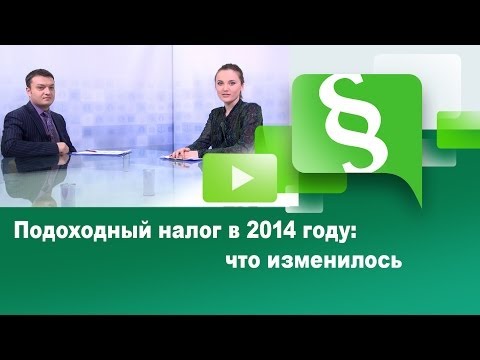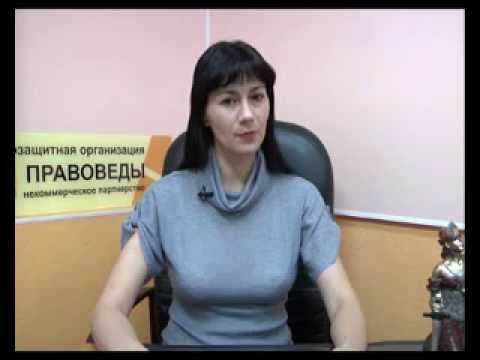Salary- this is an allowance in the form of a certain amount of money, with which a person, after receiving it, will be able to purchase various types of benefits. Good means food, clothing, etc.
Before we receive our salary, the accountant is obliged to deduct certain taxes and contributions from various authorities from the total amount of our income.
The most important tax is income tax.
Income tax is levied on all types of income, be it wages, dividends and other types of profit. But there are some types of income from which income tax is not deducted by law, such as sick leave, maternity benefits and other types of benefits.
For different citizens, income tax may be different, thus a resident of the Russian Federation pays income tax in the amount of 13% of the income, about lack of resident status, increases income tax to 30%.
To determine resident status, citizens must be present on the territory of the Russian Federation for at least 183 days a year, with the right to a short absence (study, rest, treatment) on the territory of Russia for no more than 6 months.
On what amount of salary is income tax taken?
Income tax is taken on any amount earned. The state does not provide concessions for the minimum amount.
If your salary was 3,000 rubles per month, then feel free to subtract 13% from them and find out the amount you will receive in your hands.
From the very beginning of the year, you are charged 13% income tax until your income exceeds 280 thousand rubles.
After this amount is reached, the tax ceases to be collected.
If a citizen gets a new job in the middle of the year, he should bring a certificate of income from his previous place of work to resolve this issue.
If there is a child?
Thus, all taxpayers are entitled to a deduction, for the first and second child 1,400 rubles, which does not depend on other payments.
If the child is a disabled person of the 1st or 2nd group, the amount of the deduction increases to 3,000 rubles.
Parents, having children under guardianship or trusteeship, have similar rights to a tax deduction in the amount of 3,000 rubles.
And parents with many children, having 3 or more dependent children, can take advantage of a tax deduction of up to 3,000 rubles.
Your accountant will help you take advantage of the tax deduction, since for this you need to write an application and submit the necessary documents, which the accountant will provide to the tax office.
From the minimum wage
 Minimum wage— the minimum wage for an employee (minimum wage) is established and regulated by the state, indexed to the size of the increase in inflation.
Minimum wage— the minimum wage for an employee (minimum wage) is established and regulated by the state, indexed to the size of the increase in inflation.
Basically, the minimum wage is set at the end of December; the minimum wage is set for a year.
For each region, its own minimum wage is calculated and it may differ significantly from neighboring ones. Do not confuse the minimum wage and the living wage.
Minimum wage- the minimum amount that an employer can set as the amount of wages for a fully worked month for an unskilled employee.
It is important to know that the minimum wage regulates wages, unemployment benefits, sick leave, and maternity benefits. If the employment is official, below the minimum wage the employer does not have the right to pay for the full month worked.
According to the laws of the Russian Federation, prescribed in Articles 207, 208,209...217 of the Tax Code, All individuals who are tax residents and who are not tax residents, but working on the territory of the Russian Federation, are required to pay income tax.
When determining the tax base, all types of income are taken into account, regardless of their source. And there is no definition of the minimum amount in any paragraph or article of the Tax Code.
That's why Personal income tax is levied even on minimum incomes.
Single mothers
Single mom is a status that is assigned to a woman who gave birth without registering a marriage, and an application to establish paternity was not submitted to the Civil Registry Office.
If the child was born 300 days after the divorce with the previous spouse or there is a court decision that the husband is not the biological father of the child. Or the child was adopted by a woman out of wedlock. In all these cases, a dash is placed in the father column.
A certificate is issued in form No. 25, where it is written that the father is written according to the words of the mother. And it shouldn’t be considered as such. The child's surname comes from the mother.
For such brave people who find themselves in a difficult life situation, the state provided support in the form of various kinds of subsidies, privileges and benefits. The tax legislation also defines a deduction item for them.
In the Russian Tax Code article No. 218, it is stated that single mothers have the right to a milk tax deduction for each child upon reaching 18 years.
If, after reaching 18 years of age, the child continues his studies, the period is extended by the end of his studies, but no later than the age of 24.
To receive a tax deduction, the employee must provide the necessary certificates to the HR department or accounting department (a copy of the birth certificate and a copy of the certificate in form No. 25 issued to the Civil Registry Office).
The amount of tax deduction for a single mother is 2800 rubles for the first and second child, and 6000 rubles for all subsequent children. For a student 6,000 and if the child of a single mother is disabled, then the same 6,000 rubles.
Working pensioners
The legislation is very strict with working pensioners. If a working pensioner is officially employed full-time, and his workplace is not a part-time job.
A work book is kept at the main place of work, and contributions to the social insurance fund are deducted, in which case the income tax for a working pensioner will be 13% of total income.
If a pensioner simply works part-time under an employment contract, and there is no entry in the work book, only an employment contract, in this case the income tax will be 20% of the amount of income.
But the benefit still exists, starting from January, an amount of 400 rubles is deducted monthly until the total income reaches 40 thousand rubles.
Who doesn't pay income tax?
Income tax is not calculated for pensioners, since pensions are social payments.
Important! If a citizen is not officially employed and does not maintain a work book, and accordingly does not accrue work experience, he will not pay personal income tax. Also, contributions to the social insurance fund and others will not be paid, the citizen loses social support, this period will not be included in the length of service and will not be taken into account when calculating the pension.
How to calculate income tax on wages?
Many people are familiar with the feeling when you leave the accounting department and realize that you have been deceived, but you don’t know where exactly. In order to fully understand your own income, you need to know how to calculate taxes.
Personal income tax is a tax on personal income which is 13-30% depending on the person’s status.

If a citizen is a resident of the Russian Federation, the tax will be 13% of the total income. A non-resident citizen will be required to contribute 30% of income tax. The easiest way to calculate salary tax is to divide by one hundred and multiply by the tax amount.
The tax is calculated using simple steps:
- Let's sum up the entire salary per month.
- We take away social charges, if any (sick leave, subsidies, social benefits).
- Next, we multiply the received amount by 0.13 or 0.30, depending on the status. Simply put, we divide the amount by 100 and multiply by 13 or 30.
- Tax received deducted from your salary.
- If there are benefits, the amount of the tax benefit or deduction is deducted from the salary, and the tax is calculated from the remaining amount.
Where do the withheld funds go?
Many legally obedient citizens would like to know where we make contributions and where our money goes. Roughly speaking, who do we pay and for what?
After the latest changes in the law regulating state control over the budget, which came into force on January 1, 2014, the procedure for distributing personal income tax to various structures and budgets of different levels has changed.
Currently, contributions in the amount of 85% are made to the budgets of the constituent entities of the Federation- this is the largest percentage, then local budgets take 15%.
Of the 15 percent, 5% is allocated to the budget of municipal districts, the city district takes 15%.
This entire complex process and distribution is strictly controlled and supervised. The Accounts Chamber of the Russian Federation, the Federal Treasury and the administration, which monitors compliance with all rules financially at the local level, have taken full responsibility. budget control.
What are our contributions spent on?
- The bulk of contributions are spent on the social sphere and the maintenance of the same politicians and administration, their salaries.
- This is where our free education ended up(kindergartens, schools, free clubs, budget places in colleges and institutes, as well as teachers’ salaries).
- Medicine(state hospitals, clinics and salaries of doctors and medical personnel).
- For the remainder, all cultural events.
Procedure for calculating personal income tax
- Before calculating the tax, you need to calculate and break down your salary. Including all additional payments, salaries, bonuses.
- Depending on the salary, we calculate salary and bonus, vacation pay. We take away sick leave, social assistance, maternity benefits, donor benefits, and scholarships.
- We add the resulting numbers and get the salary.
- We add a bonus to your salary, if any.(Ural allowances, northern ones, etc.).
- We begin to calculate the tax from the amount received. If there is a tax deduction, then we subtract the deduction from the salary received.
- We deduct 13 or 30% personal income tax from the remaining salary. The amount of personal income tax deducted will be obtained.
What is included in the settlement amount?
The amount of the calculation according to the law includes all types of accruals related to wages (salary, bonus, vacation pay, travel allowance, northern, Ural, polar, polar).
All types of awards- for class, for experience, sanitary condition, implementation of the plan, etc. That is, all income except social income, and the date of receipt of income is considered to be the last day of the month in which the calculation was made.

Accordingly, the accountant first calculates income and tax, then the tax is deducted and only then the salary is issued.